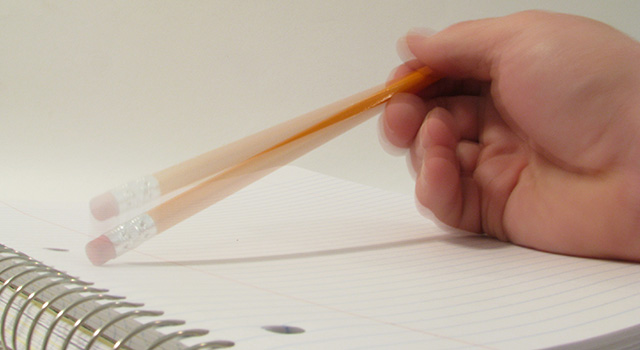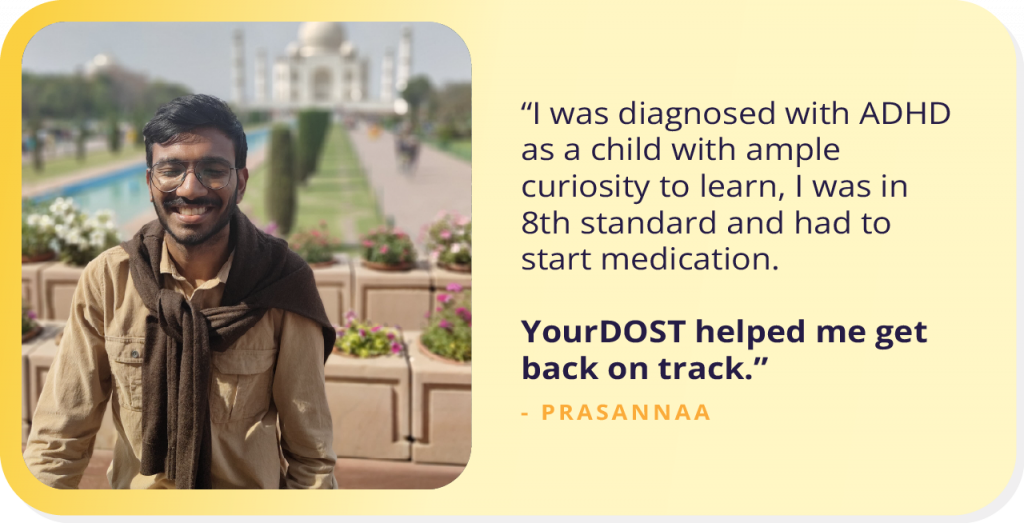10-Step Guide To Find Out If Your Child Has ADHD
How often have you watched an overly energetic child at a playground and commented on how much energy the child seems to have, or heard parents talk about their child never seeming to get tired and outshining them in terms of energy?
Source – http://marketingvisible.com/
As new parents, we are quick to dismiss such behaviour as a ‘part of childhood’. But this may be doing more harm than good to your child, if it’s a diagnosis that has been missed.
Attention Deficit Hyperactivity Disorder (ADHD) is a disorder, which results in difficulty on the part of the individual to control their levels of activity, as well as affects their ability to focus on activities at hand. ADHD emerges in childhood and typically continues into adolescence and adulthood. Though as the individual grows up, the symptoms become less disruptive in nature and don’t hamper productivity as much as they do in the early years.
ADHD has a biological basis that often makes it a lifelong condition. We want to catch ADHD early because it has such a profound effect on learning and academic development
– Dr. Mark Mahone, Director of Neuropsychology, Kennedy Krieger Institute
Here are some ways in which you can recognize if your child needs a clinical evaluation:
1. Your child finds it difficult to focus on the activity at hand, which is not typical for their age: A typical 5-6 year old child, can focus for about 10 to 15 minutes and filter out tiny distractions that occur simultaneously.
2. Children with ADHD generally lack the ability to complete one task before they move on to the next task. This is mainly because of their limited attention span and a tendency to lose interest in activities. They will, without finishing a task, jump onto another task, that captures their immediate attention
3. Even though restlessness is hard to distinguish from the normal behaviour of an energetic toddler, their activity levels become a red flag if you notice them interfering with their sleep patterns or socialising time. Typically school going kids, will have their teachers complain about how they ‘never sit still’ or are always ‘out of their seat and running around the classroom’. They could also sometimes be the quiet dreamer who sits at their desk and stares off into space, oblivious of what is happening around them
4. Constant movement even when seated. These children find it immensely difficult to sit still. The will bounce their knee, or squirm in their seat, shuffle their feet, fiddle with something in their hands
Source – https://www.brainscape.com/
5. Sometimes, aggressive behaviour is also seen as a symptom. Children with ADHD could be more disruptive in their play, and more violent when socialising and even leading to their removal from the social situation
6. Children with a possible ADHD diagnosis, find it unbearably hard to wait for a question to be completed, before the answer it. They will invariably blurt out the answer when you are only half way through the question
7. These children also tend to be noisier and louder than their fellow play mates and other kids of their own age
8. Such kids are also more prone to getting hurt and injured more often. They most often move around at unsafe speeds, resulting in injury, despite being constantly told to slow down
9. They also love climbing. You would typically hear stories of parents lamenting about their kids climbing gates, or window grills, giving no heed to the parents’ warnings and pleas
10. These children may also find it difficult to follow instructions that require planning or executing a task
It is important to understand that the behaviours outlined above are out of the control of the child, and reprimanding them for it is harming your child more than disciplining them
It would be most appropriate to get a clinical evaluation done if you notice some of the above mentioned behaviours in your child. Medication is one course of treatment, but not the only path to take.
As a parent you could make dietary changes, to control the amount of sugar intake as recommended by your pediatrician. Foods rich in protein have been found beneficial for kids with ADHD.
Additionally allow your child to expend their excessive energy in safer and more appropriate ways such as having some time set aside to jump on a trampoline, or an extra round of swimming, or anything else your child likes to do.
Behavioural modification is one of the most widely used techniques that are effective in helping you and your child cope with ADHD.
Looking for professional help to manage ADHD? Talk to a YourDOST expert today for personalised guidance.







